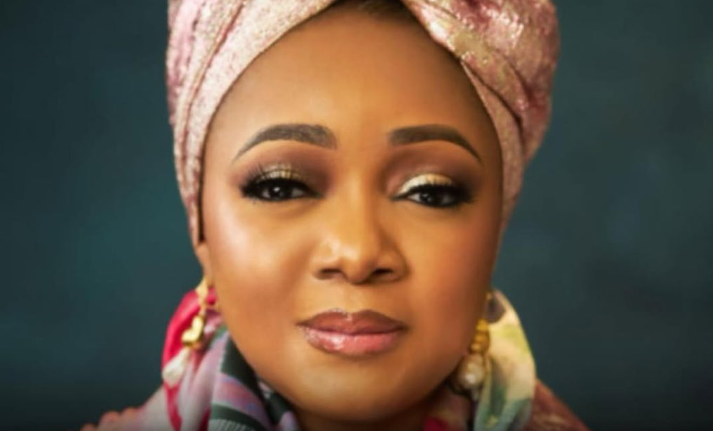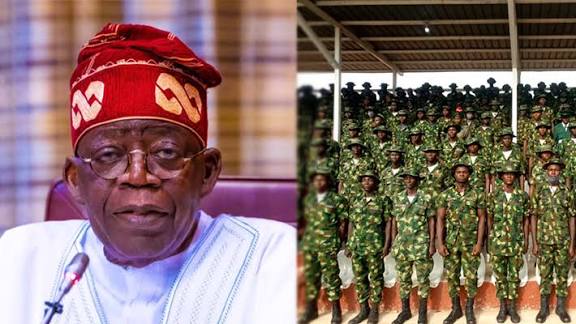
Nigeria Needs $1.2 Billion to Empower Women and Achieve Gender Equality — Minister Imaan Sulaiman-Ibrahim Sounds Alarm

Nigeria’s journey toward gender equality has taken a new turn as the Minister of Women Affairs, Imaan Sulaiman-Ibrahim, announced that the nation requires a staggering $1.2 billion over the next five years to meet its national gender equality and social inclusion targets. The revelation, made during the annual general meeting and founder’s day celebration of the League of Women Voters of Nigeria (NILOWV) in Abuja, has sparked a renewed national conversation on the cost and commitment needed to truly empower Nigerian women.
Represented by her Special Adviser, Ola Erinfolami, the Minister stated that bridging the country’s gender gap demands not only strong policies but also bold partnerships and significant financial investment in women’s advancement. According to her, the $1.2 billion funding requirement reflects Nigeria’s ambition to align with global Sustainable Development Goals (SDGs), particularly Goal 5, which focuses on achieving gender equality and empowering all women and girls.
Sulaiman-Ibrahim highlighted that the federal government is actively exploring innovative financing options such as blended finance models, public-private partnerships, and impact investments to support programmes that target women, children, and families across the country. She emphasized that gender equality is not just a moral imperative but an economic strategy capable of driving national growth, reducing poverty, and ensuring sustainable development. “Every dollar invested in women yields exponential social and economic returns,” she was quoted as saying, stressing the urgency of securing adequate funding to close the existing gap.
The event also shed light on ongoing legislative efforts aimed at increasing women’s representation in governance, with particular focus on the Reserved Seats Bill currently under consideration. The Minister commended the National Assembly for its support, describing the proposed legislation as a “strategic investment in democracy and national progress.” According to her, ensuring women’s political participation is not a favour but a necessity for balanced decision-making and inclusive governance.
Her sentiments were echoed by the Etsu Nupe, Yahaya Abubakar, who also attended the event and threw his weight behind the Reserved Seats Bill. The traditional ruler urged lawmakers across all levels of government to pass the bill, emphasizing that inclusive governance is crucial for national stability and development. “When women are empowered to take their rightful place in leadership, societies flourish,” he noted, reinforcing the call for equitable representation.
Adding her voice, the Chairperson of the Nigerian Governors’ Spouses Forum, Olufolake Abdulrazaq, represented by Hauwa Halira, underscored the importance of mobilizing broad-based support to ensure women’s full political inclusion ahead of the 2027 general elections. She stressed that the time for token representation was over, urging stakeholders to move from promises to measurable action that guarantees women meaningful participation in decision-making processes.
The gathering also saw inspiring messages from key women leaders and advocates who have dedicated their lives to advancing the cause of women in Nigeria. The founder of NILOWV, Esther Udehi, and the group’s current president, Irene Awunah-Ikyegh, called for intensified grassroots advocacy to enhance public understanding of the Reserved Seats Bill. According to them, community-level sensitization remains critical in changing mindsets and building nationwide support for policies that promote gender inclusion.
Aishatu Bura, President of the Nigeria Association of Women Journalists (NAWOJ), also took the stage, highlighting the media’s pivotal role in shaping narratives that empower women. She urged journalists to go beyond reporting events and become active advocates for equality by giving more visibility to stories that showcase women’s leadership, achievements, and challenges. “The media is not just a mirror; it is a megaphone,” she said, emphasizing the power of communication in transforming social attitudes and influencing policy direction.
The event in Abuja brought together influential women leaders, traditional rulers, political figures, and gender advocates in a unified call for action. The atmosphere was charged with optimism and determination, but beneath the speeches lay a sobering reality — achieving gender equality in Nigeria remains an expensive and complex task. The $1.2 billion funding requirement underscores the scale of work ahead in education, healthcare, economic empowerment, and political participation.
Nigeria, a country where women make up nearly half of the population, still faces significant gender disparities across various sectors. According to multiple reports, women constitute less than 6% of elected officials, and millions of girls are denied access to quality education due to poverty, cultural biases, and early marriage. Gender-based violence, limited access to credit facilities, and unequal pay continue to widen the gap, making targeted investment essential for progress.
Experts argue that achieving gender equality could add billions of dollars to Nigeria’s GDP by 2030, citing research from McKinsey Global Institute which shows that closing the gender gap in the workforce could increase global GDP by as much as $12 trillion. For Nigeria, a nation battling economic instability and youth unemployment, investing in women’s advancement could be the game-changer the country desperately needs.
The Minister’s call for blended finance and public-private partnerships signals a new approach that moves beyond government reliance on budgetary allocations. It suggests a recognition that the task is too vast for government alone. By inviting private sector investment, development partners, and civil society collaboration, the Ministry of Women Affairs hopes to create a sustainable model that will not only close the gender gap but also institutionalize gender equity as a pillar of national development.
Observers at the event praised Sulaiman-Ibrahim for her pragmatic leadership and for aligning Nigeria’s gender agenda with international best practices. However, they also cautioned that achieving real change will require more than funding — it demands political will, transparency, and consistent policy implementation at both federal and state levels.
As the meeting concluded, the collective message was clear: gender equality is not a distant dream but a national necessity that must be pursued with urgency, innovation, and collaboration. From the corridors of power to rural communities, the push for inclusive governance and economic empowerment must intensify. Women leaders, activists, and allies all echoed one sentiment — that Nigeria cannot achieve its full potential if half of its population remains underrepresented, undervalued, and underfunded.
With 2027 on the horizon, stakeholders are optimistic yet cautious. The Reserved Seats Bill, if passed, could reshape Nigeria’s political landscape and set a precedent for other African nations. But as Minister Sulaiman-Ibrahim’s statement highlights, true equality will come at a cost — a cost Nigeria must be willing to pay if it hopes to build a fair, prosperous, and inclusive future for all its citizens.
The $1.2 billion figure stands as both a challenge and a call to action — a reminder that empowering women is not just about justice, but about ensuring the survival and success of the nation itself.

